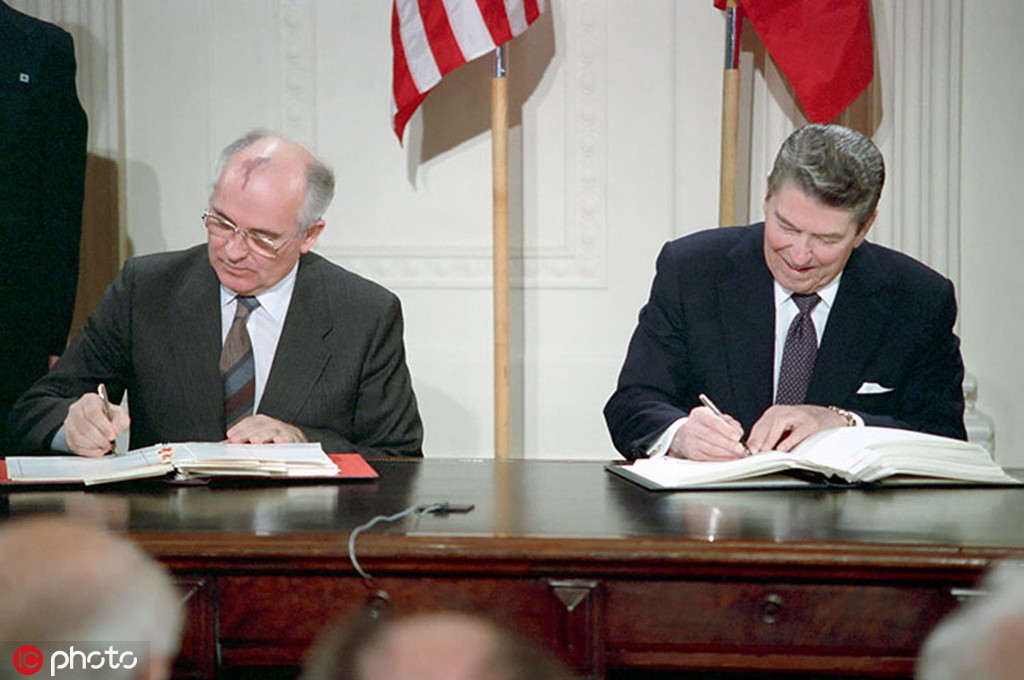Closed skies not conducive to peace: China Daily editorial
chinadaily.com.cn | Updated: 2019-10-29 21:00

Like the Intermediate-Range Nuclear Forces Treaty, the 34-signatory "Open Skies" treaty has been a crucial part of a Cold War-era strategic architecture serving global peace long past that superpower standoff.
By allowing designated airplanes of signatory countries to conduct short-notice, unarmed surveillance flights over specific areas in each other's territory, the treaty has been a significant instrument of mutual assurance, if not confidence building, between suspicious rivals, the United States and Russia in particular.
Since US President Dwight Eisenhower proposed the idea in 1955, particularly since the "Open Skies" treaty took effect in 2002, the mechanism has proven instrumental in avoiding misjudgments and mitigating an arms race.
After scrapping the INF Treaty, however, the White House is now reportedly considering withdrawing from the "Open Skies" treaty, sparking worries at home and throughout Europe.
Ukraine, the biggest potential victim of a possible US withdrawal, voiced its strong political will to preserve the treaty, insisting it is one of the fundamental international treaties guaranteeing European security and arms control.
Moscow said Washington is seeking a one-sided military advantage, and even accused it of wanting to conceal the development and tests of new weapons.
While opponents at home are primarily concerned about losing access to some of Russia's best-hidden secrets, or further damaging the image of the US in the eyes of its European allies, the biggest victim, as it was in the case of the INF Treaty, would be the post World War II arms control regime.
Since there has been little tangible change to either US-Russia relations, or the bilateral military equilibrium, or global security conditions at large since the US withdrawal from the INF Treaty, if the Donald Trump administration finally puts the "Open Skies" treaty to rest, no significant differences may be felt right away.
The White House will no doubt continue declaring everything is going as well as it can. Yet if the Trump administration does remove another cornerstone of the post-WWII arms control regime, actually that of present-day global peace, the consequences could be dire and long-lasting.
Such a move will subject many, if not indirectly all, countries including both Russia and the US to serious security threats from superpower confrontation, whose disappearance has generally been taken for granted for decades worldwide.
At least till now much of the world rested assured that the world's two most lethal militaries would not easily engage in a confrontation triggered by strategic misjudgment.
The consequences may be minimal and incremental at present. But over time, accumulated and combined, those consequences may lead to an outcome far beyond anticipation.
In the meantime, the international image of the US certainly looks uglier. Both Russia and the European allies of the US have once again censured Washington for considering a reckless and irresponsible action.
























